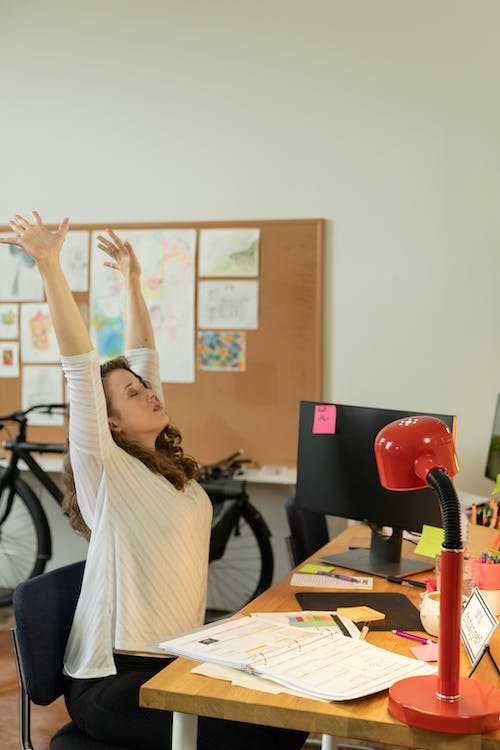Improving a Desk-Based Lifestyle
Sitting at a desk without breaks can cause multiple health issues, especially back or leg health concerns. Prolonged sitting periods can cause decreased blood flow to the lower half of the body, increased blood clots, and leg fatigue. Remote work can create a desk-dependent environment, but there are methods to improve a desk-based lifestyle.
Continue reading to learn how to improve a desk-based lifestyle with additional health benefits.
Standing Desks
Standing desks are a perfect counter to traditional desks that can keep people sitting for several hours daily. WebMD, a medical reference website, suggests that sitting too long can stress the back muscles, neck, and spine. Introducing a standing desk can alleviate body aches between alternating modes.
Additionally, Taylor & Francis Online, a peer-reviewed journal, has stated that standing desks “likely contribute to increased productivity over traditional seated desk use.” Contrary to sitting desks, standing desks can contribute to more mobility use of the lower half of the body. Besides standing desks, obtaining support for other body parts during sitting can be just as beneficial.
Lumbar & Other Support
A constant desk-based routine can worsen with poor posture or lack of proper lumbar support. According to Nouhaus Inc., office chair designers, lumbar support “prevents lower back pain and properly aligns the muscles and spine.” Likewise, exercise ball office chairs can be another alternative to prolonged sitting. Unlike lumbar support, an exercise ball can improve core strength and increase energy, according to Workspace Resource, an office furniture website. Immobility can be significantly reduced, and the desk space can be transformed into a healthier workspace. However, one should be mindful of their work schedule and ability to maintain fitness.

Exercising with Timing
Desk jobs demand employees to sit at a computer most of the day, but workers can integrate a daily fitness routine. For example, a break every 30 to 60 minutes to stretch or walk can counteract the prolonged sitting periods. One can also set reminders or alarms on one’s phone to help plan time for stretches or walks. Ultimately, finding time during the day can be a convenient prevention for poor health.
Improving the Desk-Based Lifestyle
Desk-primary jobs can be a lingering health concern if not properly moderated. Regardless, there are now convenient and helpful interventions, such as standing desks and lumbar support, to improve back or leg pain. In short, desk-dependent jobs can be a harm-free environment.
For more health tips, visit MagicFeet.club.



